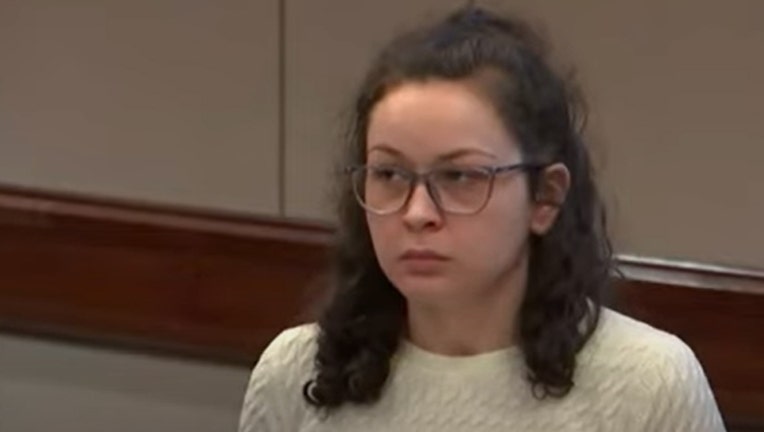The Tragic Case of Chloe Driver: Examining the Trial and Its Impact in 2024

The trial of Chloe Driver has captured national attention, especially as we enter 2024. The 24-year-old mother from Cherokee County, Georgia, stands accused of the horrifying death of her 13-month-old daughter, Hannah Nicole Driver, who was found fatally stabbed in December 2020. Since the trial began earlier this month, it has been a central focus for true crime enthusiasts, legal experts, and mental health advocates. The complexities surrounding the Chloe Driver case go far beyond a tragic loss—her defense has placed mental illness and cult-related influences at its core, making this one of the most haunting trials in recent memory.
The Circumstances Leading to the Trial
The early morning hours of December 2020 were marked by anguish when police responded to a frantic 911 call from Chloe Driver’s home in Canton, Georgia. Officers discovered a gruesome scene: both Chloe and her toddler suffering severe stab wounds inside a bedroom. According to initial reports from the 11Alive article, Chloe was unable to speak due to a throat injury but communicated in writing with investigators. During these hospital interviews, she confessed to the crime and inquired whether her daughter had survived.
Key Evidence Presented at Trial
From early sessions of the trial, the prosecution has relied heavily on the shocking physical and forensic evidence. The courtroom heard gripping 911 calls, and first responders attested to the immediate aftermath of Hannah’s murder. Based on the indictment, Chloe allegedly stabbed her daughter in the neck multiple times with a kitchen knife. Prosecutors have also painted a vivid picture of Chloe’s unstable mental state leading up to the night in question.
During the emotional first day in court, eight witnesses testified against Chloe, with several recounting traumatic details of the crime scene. The lead detective shared details, including the bedroom’s disarray and a timeline of events leading to the mother's arrest.
The Defense's Argument: Mental Health and Cult Influences
The defense's strategy has raised serious questions about the influence of mental health and external factors on Chloe’s behavior. Her lawyers have contended that Chloe had long suffered from severe mental illness, exacerbated by her involvement with a cult led by a figure named Benyamin Ben. Witnesses such as Jason Spillars, a friend of Driver's, testified about her growing paranoia and strange behavior in the months leading up to the murder, attributing it to the cult leader’s radical teachings.
The defense has argued that these cumulative pressures led to an extreme state of psychosis—a state of altered consciousness where Chloe no longer perceived reality accurately. On day two of the trial, the defense stressed that Chloe’s mental illness, compounded by her cult’s dangerous influence, distorted her perception, ultimately leading to the tragedy.
The Broader Social Implications
Beyond the immediate legal issues, Chloe Driver's case and the associated Chloe Driver cult baby trial have sparked important discussions about mental health in the context of criminal culpability. Advocates for mental health reform argue that individuals suffering from severe disorders may need greater access to treatment options before incidents escalate to this level of violence.
As the Court TV coverage has pointed out, this case is a flashpoint for examining the intersection of legal responsibility and mental illness. Can someone in the grips of a psychotic episode truly be held accountable for such an act? Furthermore, the influence of cult dynamics—often overlooked by the public—raises additional questions about the broader societal issues that may have contributed to this tragedy.
What Comes Next?
As the trial progresses into 2024, the courtroom’s focus will remain on whether Chloe Driver’s mental health defense holds enough weight to sway the jury. If the defense can prove that she was not in control of her actions, we may see a legal precedent set for similar cases that navigate the complexities involving psychosis and cult influence.
The upcoming weeks will offer crucial developments as more witnesses take the stand, including mental health professionals who will lend insight into Chloe’s state at the time of the crime. Additionally, new evidence regarding the cult's grip on Chloe’s life is expected to be introduced.
Conclusion
The chilling details of the Chloe Driver trial have riveted the nation, while also surfacing critical debates about mental health, cult influence, and justice. As we wait for the final verdict, the case will undoubtedly continue to challenge both legal definitions of responsibility and society's expectations of mental health interventions. Regardless of the outcome, Chloe Driver’s story has already left a lasting mark on the community and serves as a reminder of the complex struggles faced by those dealing with mental illness and cult manipulation.
For ongoing updates on the case, please refer to a Court TV report.
